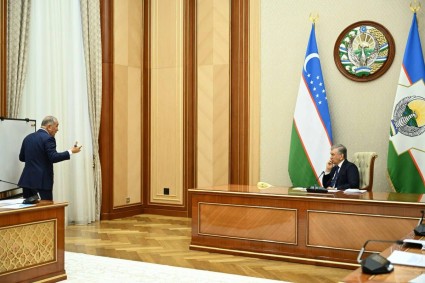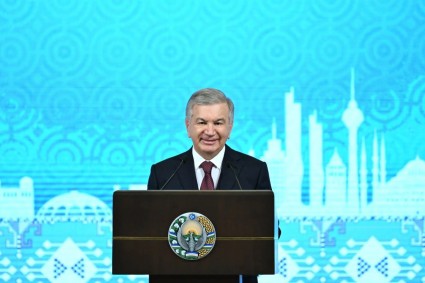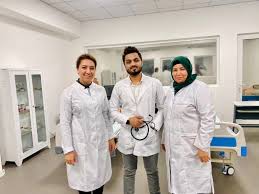During a workshop hosted by the Management Development Institute of Singapore (MDIS) in Tashkent, the World Bank presented the Human Capital Project and its recent report analyzing current challenges observed in Uzbekistan’s education sector.
The workshop at the MDIS was attended by government officials from ministries and state agencies concerned, educational experts, representatives of international organizations and the diplomatic corps, the private sector, journalists and students.
Human capital consists of the knowledge, skills, and health that people accumulate throughout their lives, enabling them to realize their potential as productive members of society. Public investments in people through nutrition, health care, quality education, jobs, and skills help develop human capital, and this is key to ending extreme poverty and creating more inclusive societies.
The workshop participants were informed that in 2018 the World Bank launched the Human Capital Project (HCP), a global effort to accelerate more and better investments in people for greater equity and economic growth.
The project includes three components:
- a Human Capital Index measuring the contribution of health and education to the productivity of the next generation of workers;
- a program to strengthen research and measurement on human capital;
- and the World Bank’s support to nearly 40 countries that have expressed keen interest in tackling the barriers to human capital development.
“The Government of Uzbekistan recognizes the importance of investing in people to build the human capital that is crucial for Uzbekistan’s economic transformation and future,” World Bank Country Manager for Uzbekistan Hideki Mori said. “We welcome the fact that in 2018 Uzbekistan became the first Central Asian state to join 27 other countries from around the world supporting the implementation of the Human Capital Project,” Mori noted.
In addition to discussing the HCP, the World Bank experts also present the key findings from their recent report analyzing current challenges observed in Uzbekistan’s education sector from preschool to higher education. It provided a comprehensive overview of these challenges with a focus on access, quality, and relevance of education for the labor market and economy.
The report, which will be published at the World Bank’s website shortly, presents relevant educational outcomes and findings on the system’s performance, as well as the important reforms underway across the sector. It assesses areas where the country has made progress as well as areas for further improvement.
A key message from this report is that the reform agenda in Uzbekistan is ambitious. While this agenda represents a considerable effort on the part of the Government to meet the needs of its citizens for education and skills development, it also comes with a series of implementation challenges that should not be underestimated. Key systems for monitoring, quality measurement, and quality assurance are essential to support the progress of educational reforms and ensure that they translate into tangible results, the World Bank experts noted.
Based on the analysis mentioned above, the World Bank experts also proposed policy recommendations for consideration of the Government. These recommendations, which reflect the nature and direction of ongoing educational reforms, focus on transformative changes in certain areas including:
- improving the quality and availability of early learning opportunities in the preschool system;
- improving teaching conditions;
- improving existing standards and assessments;
- building socioemotional skills;
- promoting inclusive education;
- and developing skills in alignment with labor market needs.
The World Bank is supporting Uzbekistan through the implementation of 19 projects, totaling around $3.4 billion. These projects contribute to the implementation of macroeconomic reforms, the improvement of agriculture and water resources management, energy, transport, healthcare, education, water supply and sanitation services, and urban development.















